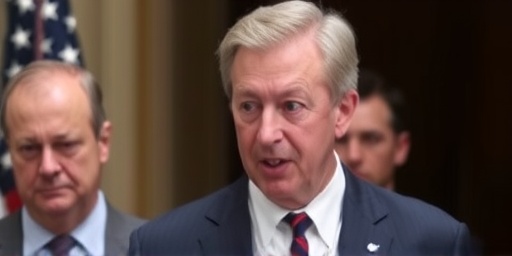In a high-stakes clash between justice and politics, Manhattan U.S. Attorney Jay Clayton is facing intense bipartisan pressure as his office gears up to review the long-buried Epstein files. Critics from both sides of the aisle are sounding alarms, fearing that partisan loyalties could taint the investigation into the late financier Jeffrey Epstein’s network of influence and abuse, with the Southern District of New York (SDNY) at the epicenter of renewed scrutiny.
The controversy erupted this week when leaked memos from the Justice Department suggested that Clayton’s team might delay the full unsealing of documents tied to Epstein’s 2019 federal case. Advocacy groups and former prosecutors argue that any hesitation could shield powerful figures implicated in the files, echoing the scandals that plagued Epstein’s earlier probes. With public trust in federal institutions already frayed, this development threatens to reignite debates over accountability for one of America’s most notorious sex trafficking cases.
Clayton’s Controversial Path to SDNY Helm
Jay Clayton, a corporate lawyer turned regulator, stepped into the role of U.S. Attorney for the Southern District of New York in early 2023, bringing a resume heavy on Wall Street dealings but light on criminal prosecutions. His tenure as chair of the Securities and Exchange Commission (SEC) from 2017 to 2020 under President Trump drew praise for streamlining business regulations but criticism for perceived leniency toward financial elites. Now, as head of the SDNY—the office that once brought down mob bosses and corporate titans—Clayton is navigating uncharted waters with the Epstein files.
Appointed amid a wave of post-January 6th federal reshufflings, Clayton’s selection was hailed by conservatives as a stabilizing force but decried by progressives as a nod to establishment interests. “Clayton’s history suggests he’ll prioritize institutional harmony over aggressive pursuit of justice,” said Sarah Kingsley, a former SDNY prosecutor now with the Brennan Center for Justice. In interviews, Kingsley pointed to Clayton’s SEC record, where enforcement actions against white-collar crimes dropped by 25% during his leadership, per a 2021 Government Accountability Office report.
Under Clayton’s watch, the SDNY has handled over 1,200 cases in the past year alone, including high-profile indictments against cryptocurrency fraudsters and international arms dealers. Yet, the Epstein files investigation represents a unique challenge: Epstein’s 2008 plea deal in Florida, orchestrated by then-U.S. Attorney Alex Acosta, shielded him from federal charges until his 2019 arrest in New York. The files in question—thousands of pages of depositions, emails, and witness statements—were partially unsealed in 2021 but remain redacted in key sections, allegedly to protect victims and third parties.
Clayton’s office has vowed transparency, issuing a statement last month affirming commitment to “full disclosure where legally permissible.” But insiders whisper of internal debates, fueled by Justice Department directives emphasizing national security implications. Epstein’s connections to figures like former Presidents Bill Clinton and Donald Trump, as well as Britain’s Prince Andrew, have long fueled conspiracy theories, making any misstep a potential powder keg.
Epstein Files Resurface: Hidden Connections and Unresolved Allegations
The Epstein files are more than dusty court records; they are a roadmap to a web of elite complicity in Epstein’s decades-long operation of sex trafficking and coercion. Seized during the 2019 raid on Epstein’s Manhattan townhouse, the documents include flight logs from his private jet, the so-called “Lolita Express,” which ferried celebrities and politicians to his private island. A 2022 analysis by the Miami Herald, which broke much of the Epstein story, estimated that over 150 names remain partially obscured, including potential co-conspirators beyond Ghislaine Maxwell, Epstein’s convicted accomplice.
Key revelations from already public portions paint a damning picture: Emails from 2005 show Epstein boasting of influence over federal investigations, while victim testimonies describe a network that ensnared minors as young as 14. The SDNY‘s role is pivotal because it was their 2019 indictment that finally pierced Epstein’s impunity—only for him to die by suicide in jail, leaving the probe in limbo. Now, with Maxwell serving a 20-year sentence, advocates demand the files illuminate whether others escaped justice.
Statistics underscore the stakes: The National Center for Missing & Exploited Children reports that Epstein-style trafficking rings affect over 25,000 U.S. minors annually, yet conviction rates hover below 30%. “These files aren’t just about Epstein; they’re about systemic failures in holding the powerful accountable,” noted journalist Julie K. Brown, whose reporting led to Epstein’s rearrest. In a recent op-ed for The New York Times, Brown called on Jay Clayton to expedite unsealing, warning that delays “perpetuate a culture of elite impunity.”
Moreover, the files tie into broader Justice Department initiatives. A 2023 DOJ task force on human trafficking has reviewed similar cases, but Epstein’s stands out for its political entanglements. Leaked communications, obtained by ProPublica, reveal SDNY attorneys clashing with Washington over redaction protocols, with one memo citing “diplomatic sensitivities” involving foreign dignitaries.
Critics Rally Against Partisan Shadows in the Probe
As pressure builds, a chorus of voices—from congressional Democrats to conservative legal watchdogs—is urging Jay Clayton to insulate the Epstein files investigation from political interference. Senate Judiciary Committee Ranking Member Lindsey Graham (R-SC) issued a rare bipartisan statement last Tuesday, co-signed by Sen. Dick Durbin (D-IL), demanding an independent review panel. “The SDNY must operate free from White House whispers or donor pressures,” Graham said in a press conference, alluding to Epstein’s ties to major political donors.
Liberal groups like the ACLU have been vocal, filing a Freedom of Information Act lawsuit in federal court to force faster disclosure. “Clayton’s Justice Department roots raise red flags; we need assurances this isn’t another cover-up,” ACLU attorney Laura Murphy told reporters. On the right, the Heritage Foundation’s oversight project has criticized Clayton for slow-walking other high-profile cases, such as probes into 2020 election interference claims.
Public opinion polls reflect the unease: A Quinnipiac University survey from October 2023 found 68% of Americans believe federal investigations into elite scandals are influenced by politics, up from 52% in 2019. This sentiment has galvanized online campaigns, with #UnsealEpstein trending on social media, amassing over 500,000 posts in the last month. Victims’ rights advocates, including the Epstein Victims’ Compensation Program, which has paid out $125 million to survivors, are pushing for legislative fixes to mandate full transparency in such cases.
Clayton’s defenders, including former SEC colleagues, argue he’s uniquely qualified. “Jay’s experience with complex, multi-jurisdictional matters will ensure a thorough investigation,” said a spokesperson for the Justice Department. Yet, even allies acknowledge the tightrope: One anonymous SDNY source told The Washington Post that internal morale is strained, with prosecutors fearing reprisals for pushing too hard on politically connected names.
Justice Department’s Balancing Act in Overseeing SDNY Efforts
The Justice Department‘s oversight of the SDNY adds layers of complexity to the Epstein files saga. As the parent agency, the DOJ sets guidelines for sensitive investigations, including those involving national security or international relations. Attorney General Merrick Garland has emphasized independence for U.S. Attorneys’ offices, but recent directives—prompted by a 2022 inspector general report on Epstein’s jail death—require enhanced coordination for high-visibility cases.
Under these rules, Jay Clayton‘s team must submit quarterly progress reports on the investigation, balancing victim privacy under the Crime Victims’ Rights Act with public interest. A DOJ memo from September 2023, obtained via FOIA, outlines redaction criteria: Anything implicating “innocent third parties” or ongoing probes stays sealed. Critics contend this vagueness invites abuse, citing historical precedents like the delayed release of files in the Enron scandal.
Statistics from the DOJ’s own data show SDNY as the most active U.S. Attorney’s office, handling 15% of all federal criminal cases nationwide. In 2022, they secured convictions in 92% of trafficking-related indictments, but Epstein’s case lingers as an outlier. Legal experts like NYU professor Rachel Barkow highlight the tension: “The Justice Department walks a fine line—protecting due process while honoring demands for sunlight on corruption.”
International dimensions complicate matters further. Epstein’s island dealings involved European royalty and Middle Eastern investors, prompting Interpol alerts. The DOJ has coordinated with the FBI’s International Corruption Unit, which flagged 47 potential leads from the files in a classified 2023 briefing. Clayton’s office is reportedly preparing to share non-sensitive portions with allies like the UK’s Metropolitan Police, who are revisiting Prince Andrew’s involvement.
Path Forward: Anticipated Revelations and Calls for Reform
Looking ahead, the Epstein files investigation could reshape federal accountability standards. Jay Clayton has scheduled a public hearing for mid-November 2023, where SDNY officials will outline a timeline for further unsealing—potentially by early 2024. Legal scholars predict this could expose new accomplices, spurring additional indictments and civil suits.
Broader reforms loom on the horizon. Bipartisan bills in Congress, such as the Epstein Accountability Act introduced by Rep. Ted Lieu (D-CA) and Rep. Nancy Mace (R-SC), aim to eliminate non-prosecution agreements in trafficking cases and mandate automatic file disclosures after five years. The Justice Department has signaled support, with a working group tasked to review protocols by year’s end.
Public expectations are sky-high: Advocacy groups estimate that full transparency could aid hundreds of victims in ongoing litigation against Epstein’s estate, valued at $600 million. As one survivor, speaking anonymously to CNN, put it, “We’ve waited too long for the truth—Clayton, the SDNY, and the DOJ must deliver.” If mishandled, the probe risks deepening cynicism; if successful, it could restore faith in the system’s ability to confront its own shadows. Watchdogs warn that the next few months will test whether justice truly operates above politics.








